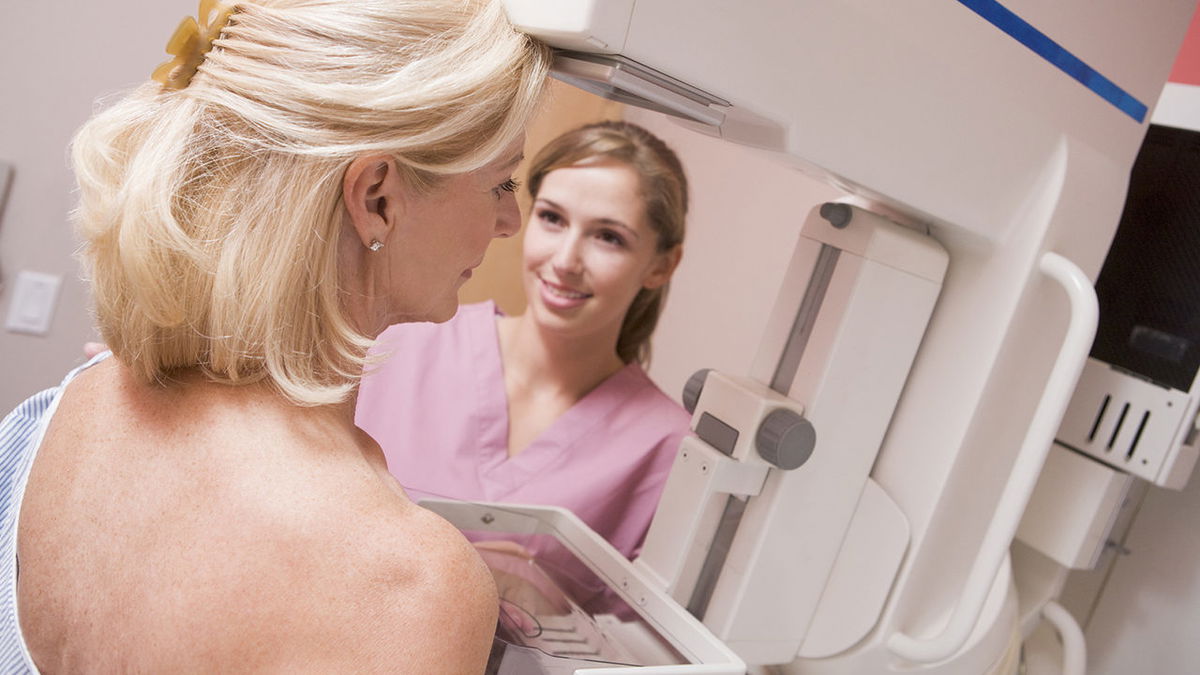Should women younger than age 45 get a mammogram?

The American Cancer Society recommends that women age 45 and older get an annual mammogram. But there is new thinking that women younger than 45 should get one, because there are several factors that should be considered.
Here are the 8 reasons, according to thehealthy.com that women younger than 45 should get a mammogram:
- You have a personal history of breast cancer: Even if you didn't have full-blown breast cancer, but a high-risk lesion was found via biopsy from your breast, you should be getting mammograms earlier than the recommended age of 45 for average-risk women.
- You have a family history of breast cancer: A woman's risk of breast cancer nearly doubles if she has a first-degree female relative who has been diagnosed with breast cancer. First degree means your mother, sister, or daughter. If two of those first-degree relatives have been diagnosed with breast cancer, your risk rises to 60 percent, or five times higher than average.
- You know of genetic mutations in your family: There are many gene mutations that have a link to cancer, but the most common for breast cancer are BRCA1 and BRCA2. Experts recommend that anyone with these mutations be monitored carefully and discuss risk with a doctor who specializes in breast cancer.
- You were exposed to radiation therapy between ages 10 and 30: If you were exposed to radiation for any reason during the ages 10 to 30, discuss it with your doctor to determine the ideal age to start mammograms.
- There's a history of cancer in your family: The lifetime risk of developing cancer over the course of your life is about 1 in 3, according to the American Cancer Society, which explains why most people have a family member who's been diagnosed with cancer. But if there happens to be a great deal of cancer in your family—what seems like more than usual—it's worth mentioning it to your doctor to see if you qualify for an earlier mammogram.
- You have dense breasts: Dense breast tissue is quite common, and researchers have unfortunately linked it to an increased risk of larger tumors or more advanced cancer at diagnosis. Dense breast tissue can make it more difficult to detect problems on a mammogram, which is why women at high risk and/or with dense breasts may benefit from a more sensitive test: breast MRI.
- You notice a lump that doesn't go away: It's not uncommon for women—especially young women who are still experiencing a monthly menstrual cycle—to notice a lump in the breast. This is even more likely if you are breastfeeding, as the breast tissue is constantly changing due to milk production. Most of the time there is nothing to worry about and the lump goes away on its own. However, if you notice a palpable breast lump that doesn't go away with your menstrual cycle - if you still have cycles, request a mammogram.
- You experience nipple discharge or changes on the skin: Nipple discharge is a not uncommon symptom in women with breast cancer. In fact, it is the third most common symptom after breast pain and the presence of a lump, according to research published in Radiologia Brasileira. If you notice nipple discharge that is persistent and especially if it is one-sided, schedule an appointment with your primary care physician or gynecologist who may recommend that you schedule an earlier mammogram.
